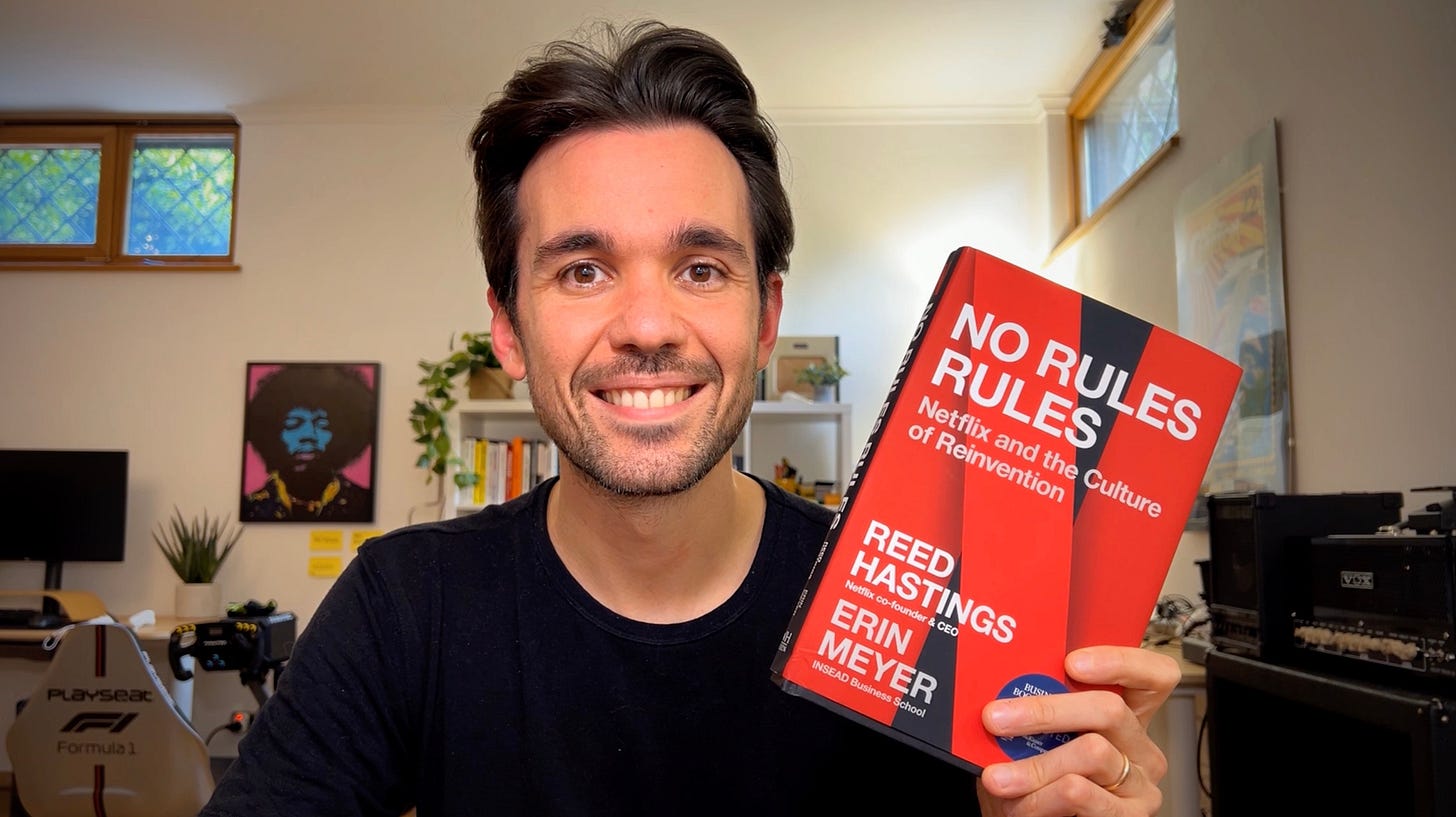No Rules Rules 📕
Our review + summary of the famous book about Netflix culture
Hey there! This is a Book Edition 📚 — where I publish our review + summary of a famous non-fiction book in our space.
It is made possible by the book club in the community, where every two months we decide on a non-fiction book to read, and we review it together in a live event at the end of the period.
So, over the last two months we have read No Rules Rules — by Reed Hastings, co-founder and ex-CEO of Netflix, and Erin Meyer, management professor and author.
The subtitle of the book is: Netflix and the Culture of Reinvention, and, in fact, this is a book about culture. Strong, opinionated company culture. Culture you may disagree with.
This is, in a way, refreshing.
Company culture is often the land of the fairy tales: we say nice things about our values, about our mission, and find ourselves nodding to not-particularly-challenging statements.
Can you really disagree with don’t be evil? Or do the right thing?
Netflix culture is different. It is not about universal rules, it is about the specific formula that works well for them. As a company, you may not be able to apply all of this advice, and as an individual, you may easily say: this is not for me.
In this review I will cover the main ideas from the book, adding my own commentary, and references to other books which cover similar topics. Sometimes it will be to reinforce the message, other times to provide a counter-example.
So, here is the agenda:
🦅 Freedom & Responsibility — the foundations of Netflix philosophy.
🏅 Talent Density — a great workplace is stunning colleagues.
📣 Candor — saying what you think and giving great feedback.
🔓 Removing Controls — from vacation policies to leading with context.
🌎 Going Global — scaling the culture across multiple countries.
📌 Conclusion — main takeaways and my personal take.
Let’s dive in!
🦅 Freedom & Responsibility
Reed Hastings argues that modern companies have two main options for how to structure their organizations: rules-and-process, or freedom-and-responsibility.
📏 Rules-and-process — is how most organizations work, and was born directly out of the industrial revolution. It prizes order over individuals’ freedoms, and it’s best for situations where maintaining consistency and safety is paramount.
👑 Freedom-and-responsibility — prizes flexibility over consistency. It allows people to move and adapt quickly, which is best for businesses that rely on innovation.
While both have their merits, for Hastings the success of most modern companies depends on being relevant and innovative, rather than safe and consistent, so they should pick F&R.
F&R, though, is a destination. To get there, you need to take care of three pillars:
🏅 Talent Density
📣 Candor
🔓 Removing Controls
In the book, these three ideas unfold throughout three main chapters, which, however, are not organized the way you think.
Instead of covering one idea per chapter, each chapter goes through all of them, each time in a more advanced way. They work, respectively, like beginner, intermediate, and expert levels of F&R 👇
The reason for this choice is, I believe, that the book wants to be both a manual about good culture (according to Netflix) and a recollection of the Netflix evolution through various stages.
So, the chapters read like evolutionary steps, and for good reason. Today it is easy to take Netflix for granted as a modern tech giant, but the reality is: Netflix is older than Google.
It was founded in 1997, and for more than ten years it only worked as a DVD rental service. It reinvented itself in 2007, as a streaming platform, and the rest is history (trivia: it has still been shipping DVDs until last year).
So, the culture changed and grew together with its host, and the book structure (and all the stories and examples) wants to reflect that.
For this review, we are going to transpose this structure and review each pillar individually 👇




